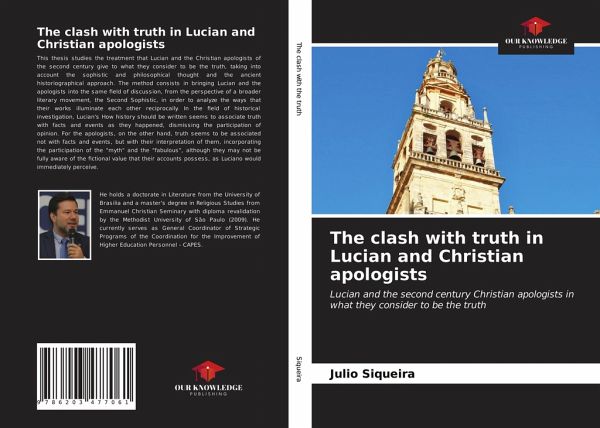
The clash with truth in Lucian and Christian apologists
Lucian and the second century Christian apologists in what they consider to be the truth
Versandkostenfrei!
Versandfertig in 1-2 Wochen
50,99 €
inkl. MwSt.

PAYBACK Punkte
25 °P sammeln!
This thesis studies the treatment that Lucian and the Christian apologists of the second century give to what they consider to be the truth, taking into account the sophistic and philosophical thought and the ancient historiographical approach. The method consists in bringing Lucian and the apologists into the same field of discussion, from the perspective of a broader literary movement, the Second Sophistic, in order to analyze the ways that their works illuminate each other reciprocally. In the field of historical investigation, Lucian's How history should be written seems to associate truth...
This thesis studies the treatment that Lucian and the Christian apologists of the second century give to what they consider to be the truth, taking into account the sophistic and philosophical thought and the ancient historiographical approach. The method consists in bringing Lucian and the apologists into the same field of discussion, from the perspective of a broader literary movement, the Second Sophistic, in order to analyze the ways that their works illuminate each other reciprocally. In the field of historical investigation, Lucian's How history should be written seems to associate truth with facts and events as they happened, dismissing the participation of opinion. For the apologists, on the other hand, truth seems to be associated not with facts and events, but with their interpretation of them, incorporating the participation of the "myth" and the "fabulous", although they may not be fully aware of the fictional value that their accounts possess, as Luciano would immediately perceive.












